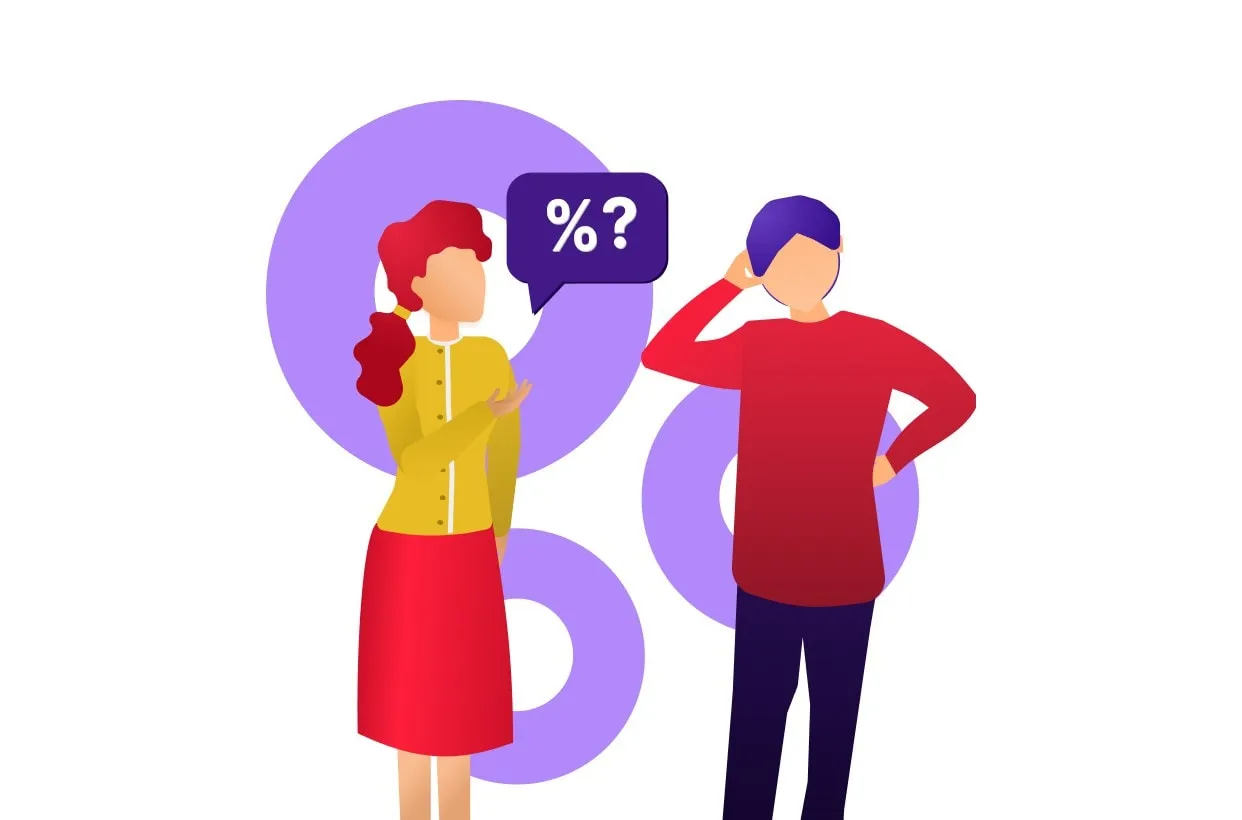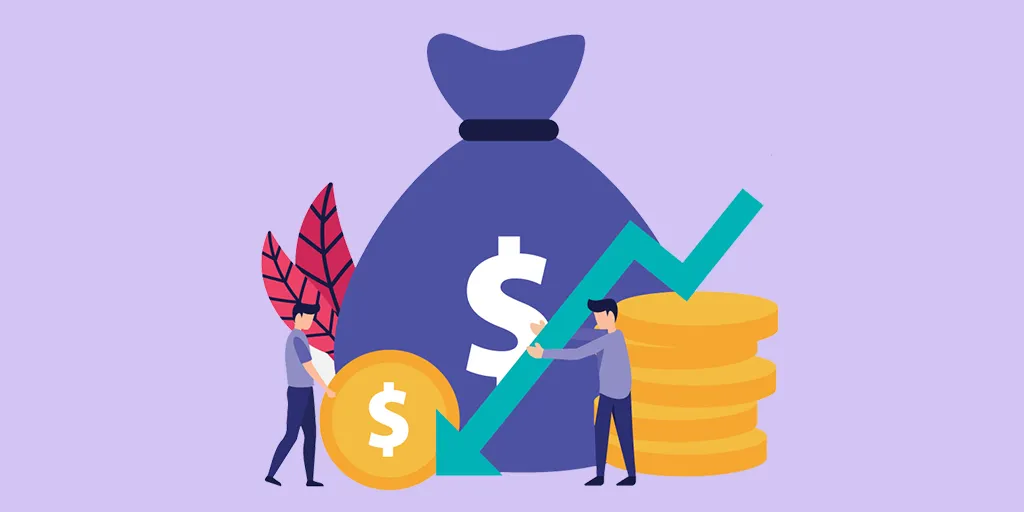Negotiating can save you big—buyers who negotiate can save 10-15% on average, according to a 2019 study by Consumer Reports.
Negotiation is an important part of the sales process, whether you're buying or selling. Whether it's haggling over a car price or bargaining rent, knowing how to negotiate effectively puts the person around you in control.
This guide breaks down real-world examples to help you master the art of the deal.
5 Examples of Price Negotiation

1. Buying a Car: Counter-Offer
Buying a car is a great chance to practice your negotiation skills. It often involves a lot of back-and-forth.
Here’s how you can do it effectively:
- Start with a Lower Offer: Car prices are often marked up. If the seller's price is $12,000, begin by offering around $10,000. This gives you room to negotiate without appearing unreasonable. Don't be afraid to say, “Can you offer a discount on this?” It puts the ball in their court.
- Present Justifications: If the car needs repairs or has other flaws, mention it to justify why you're asking for a lower price. Sellers are more willing to negotiate when you provide solid reasons.
- Understand Their Position: Salespeople often have sales targets and wiggle room in their prices. Knowing this can help you confidently make counter-offers, asking, “What’s the best deal you can offer?”
2. Haggling at a Flea Market: The Power of Walking Away
Flea markets are the perfect place to practice price negotiations. Sellers are used to bargaining, and prices are rarely fixed.
Here's how to make the most of it:
- Start Low, Then Go Up: If a seller offers a product for $50, you could begin by suggesting $35. Keep in mind that haggling is expected, so don’t feel shy about making a lower offer.
- Be Willing to Walk Away: If the seller doesn’t agree to your price, start to walk away politely. Sellers might come back to you with a counter-offer. Walking away gives you leverage because it shows you're not desperate for the deal.
- Bundle Items for a Better Price: Buying multiple items? Ask the seller for a “bundle price.” For example, if you're buying a couple of items priced at $20 each, ask, “Can I get both for $30?” Sellers are often willing to give discounts for bigger purchases.
Many sales people are open to negotiating, especially if it helps close the deal.
3. Negotiating Rent with a Landlord: Finding Common Ground
When you’re renting a place, you may think that the rent price is fixed. But that’s not always true. Many landlords are open to price negotiations, especially if they want to keep good tenants. Understanding the needs of the other party is crucial for finding a win-win solution.
Here's how you can start:
- Do Your Research: Find out the average rent prices in your area. If other places are renting for cheaper prices, use that as a reason to negotiate for a lower price. This gives you a solid point to bring up during your conversation with your landlord.
- Offer Longer Lease Terms: Landlords often prefer stable, long-term tenants. Offer to sign a longer lease, like 12 or 24 months. This can make the landlord more willing to negotiate rent because they get the benefit of a steady income.
- Highlight Repairs or Maintenance Costs: If there are things that need fixing in the apartment, mention them. Explain that you are willing to accept the repairs as they are if the landlord lowers the rent. Or you can ask them to cover the repair costs as part of the deal.
- Providing clear reasons why the rent should be reduced makes the negotiation process smoother.
4. Purchasing Software for Business: Bundling for Discounts
Software can be expensive, especially for businesses. If you need multiple tools or licenses, negotiating prices is a smart way to save costs. A good sales person knows that a successful negotiation benefits both sides.
Here’s how you can do it effectively:
- Bundle Your Purchase: If you need more than one type of software, ask if there’s a bundle deal. Sellers are often willing to offer a discount when you buy several products at once.
- For example, if you're purchasing both accounting and project management software, say, "If I get both, could you give me a better price?”
- Ask About Business Discounts: Many software providers have special pricing for business customers. Don’t hesitate to ask, “Do you have any business or bulk purchase discounts?” Sometimes, they even have special offers that aren’t advertised.
- Negotiate for Extra Features or Services: If the price can't go any lower, see if the seller can offer added value instead. This could be extra licenses, priority support, or free updates.
- For instance, if you’re paying for a year-long subscription, ask, “Could you throw in an additional month or extra features?”
5. Home Renovations: Competitive Bidding for Better Rates
Renovating a home can be costly. But did you know you can negotiate for a better deal?
Here’s how you can do it:
- Get Multiple Quotes: Ask at least three different contractors for prices. This way, you can compare and pick the best deal. It also gives you a good idea of what the average cost is.
- Use the Bids to Negotiate: Once you have quotes, use them to negotiate. If one contractor gives a higher price, let them know you got a cheaper price from another. Say something like, “Can you match this lower price?”
- Ask for Extra Services or Discounts: Sometimes, contractors may not lower their price, but they might be willing to add extra services. Ask if they can include painting, cleaning, or other work at no extra cost.
Benefits of Negotiating Prices and Lowering Costs

1. Maximizes Savings for Reinvestment
Negotiating a better good deal means you pay a lower price. When you save money, you can use those savings for something else. It shows how negotiating is a smart way to get the best deal and maximize value.
How To Do It:
- Research average prices before you negotiate.
- Compare costs from different sellers.
- Ask for a discount or cheaper price politely.
2. Strengthens Buyer-Seller Relationships
When you negotiate in a friendly way, you build a better relationship with the seller. This is important because good relationships can lead to more benefits in the future, like exclusive deals or added services.
Sellers appreciate when buyers talk openly about costs and are willing to compromise to find a fair price.
How To Do It:
- Be respectful and show interest in the seller's offer.
- Ask open-ended questions like, “Can you do a better price if I buy more?”
- Make sure the conversation is about finding a solution that works for both you and the seller.
3. Improves Cash Flow and Budgeting
Lowering costs through negotiation helps you manage your money better. For example, if you're buying supplies for a business, negotiating prices can help you stay within budget and plan for future expenses.
Better cash flow means you have more money available for other needs, like marketing or saving for unexpected costs.
How To Do It:
- Set a clear budget before negotiating. Know how much you can spend.
- Ask for further concessions or added benefits to make the deal even better.
- Think long-term—lower prices now can help you save more over time.
4. Encourages Value-Driven Purchasing
When you negotiate prices, you think carefully about value. It's not just about finding the lowest price; it's about getting the best deal for your money.
Negotiating helps you focus on what's most important, like warranty, extra services, or better specifications.
How to Do It:
- Before negotiating, know what you value most. Is it quality, extra features, or support?
- Ask the seller to add extra value, like a free accessory or an extended warranty.
Negotiation helps you understand what's important in a purchase agreement, so you always walk away feeling satisfied with your deal.
5. Increases Profit Margins
For businesses, negotiating prices is key to increasing profit margins. A lower price means your business spends less on costs and can make more profit when selling products or services.
For instance, you negotiate a discount from a customer to a seller on supplies. That extra money saved can boost your profit margins and help your business grow.
How to Do It:
- When negotiating, don’t just focus on the price—look at the full deal. Ask for discounts or extra services that will save money in the long run.
- Build strong relationships with sellers. The more they trust you, the more likely they are to offer better deals.
Key Phrases to Use When Asking for a Cheaper Price

When you're buying something, it's normal to want the best deal. Knowing what to say can make all the difference. Here are some phrases that can help you negotiate prices like a pro:
1. “Is This the Best You Can Do?”
This phrase is simple and polite. By asking lower price politely even if it’s the best price, you open up room for the seller to lower the cost. It shows you’re interested in buying, but you're hoping for a better deal.
2. “Can You Offer a Discount?”
Sometimes, sellers have discounts that they don’t mention right away. By directly asking for a discount, you make it clear that you're looking for a cheaper price. Whether it’s 10%, 15%, or even more, every discount helps.
3. “I’ve Seen This for Less at Another Store.”
Mentioning that you found a similar product for a lower price somewhere else can push the seller to match or beat the competitor on the price. This strategy is especially useful if you're shopping for big items like electronics, appliances, or furniture.
4. “If I Buy More, Can I Get a Better Deal?”
Buying in bulk or getting multiple items can often get you a discount. If you’re planning to buy more than one product, use this phrase. Sellers love bigger sales, so they might be willing to lower the price.
5. “Is There Any Wiggle Room on the Price?”
The term "wiggle room" simply means flexibility. This phrase lets the seller know that you’re open to negotiation. It's friendly and doesn’t sound like a demand, making it easier for the seller to consider lowering the cost.
6. “What’s the Lowest Price You Can Offer?”
This phrase goes straight to the point. It helps you know how much the seller is willing to drop the price. However, be sure to ask this politely, with a smile, to keep the conversation friendly.
7. “Can You Throw in Something Extra?”
If the seller can’t lower the price, ask if they can add more value to the deal. This could be an additional item, free shipping, or an extended warranty. It’s a great way to get a better overall deal without changing the price tag.
8. “If I Pay Cash, Can I Get a Discount?”
Paying cash can sometimes help you get a lower price. Sellers might prefer cash because they don’t have to pay credit card fees. So if you’re ready to pay on the spot, it’s worth asking for a small discount.
Common Mistakes to Avoid During Price Negotiations

1. Focusing Only on Price, Not Value
Many buyers think that the lowest price is always the best deal. But sometimes, a cheaper price might mean lower quality or fewer features. It's important to look at the value you're getting for your money, not just the cost.
How to Avoid It:
- Compare the features and benefits, not just prices.
- Think about what matters most to you—quality, warranty, or service—and make sure it's included in the deal.
2. Revealing Your Budget Too Early
If you share your budget at the start, the seller may not lower their price. They know what you’re willing to spend, and that gives them an advantage. It’s better to keep your budget private until you have a feel for the negotiation.
How to Avoid It:
- Let the seller make the first offer.
- If asked about your budget, you can say something like, “I’m still exploring my options.”
3. Starting with Unrealistic Offers
Everyone wants a great deal, but starting with a price that’s too low can make the seller unwilling to listen and negotiate. It might even hurt the relationship and lead to a “no” right away.
How to Avoid It:
- Do your research. Find out the average price in the market for the item or service.
- Make a fair first offer that's slightly below your target price, leaving room for negotiation.
4. Rushing the Process
Negotiating prices takes time. If you rush, you may miss out on a better deal. Some sellers may lower their price after some back-and-forth, but only if they feel you’re serious about the purchase.
How to Avoid It:
- Be patient. Take your time to understand what is being offered.
- Don’t be afraid to ask questions or take a break to think things over.
Conclusion
Learning how to negotiate price as a buyer can save you money and help you find the best deal. Always remember to focus on value, use the right phrases, and take your time. Practice makes perfect, so keep negotiating and see your savings grow!







.webp)

